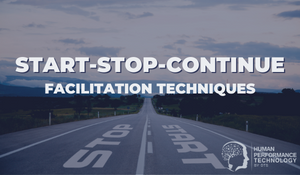Tuckman's Stages of Group Development
-2 Minute Read
Tuckman's Stages of Group Development is a psychological model introduced by Bruce Tuckman in 1965 to describe the typical sequence of stages that a group goes through when coming together to achieve a common goal. The original model consisted of four stages: Forming, Storming, Norming, and Performing. In 1977, Tuckman and Mary Ann Jensen added a fifth stage called "Adjourning." Here is a brief overview of each stage:
Forming
In this initial stage, team members are often polite, anxious, and focused on understanding their role within the group. Leadership is usually centralised, and there is a sense of optimism, albeit sometimes guarded, about the tasks ahead. Team members look to the leader for guidance and are eager to understand the group's objectives and how they will contribute.
Storming
This stage is characterised by conflict and competition as team members start to express differing opinions, ideas, and work styles. There may be challenges to the leadership, and team members may struggle over their roles and responsibilities. This stage is often stressful, but it's also necessary for the growth and development of the team.
Norming
During the Norming stage, team members begin to resolve the conflicts and tensions of the Storming stage. They start to develop a sense of cohesion, mutual respect, and agreement on roles and responsibilities. Norms and guidelines for working together are established. Trust begins to form, and the team develops a sense of unity.
Performing
In the Performing stage, the team becomes more strategically aware and efficient, working towards the common goals with a strong sense of interdependence. Roles are flexible, and group members are highly skilled, motivated, and capable of making decisions collectively without friction. The focus is on over-achieving goals, and the team's energy is channelled toward problem-solving and task effectiveness.
Adjourning (or Mourning). This is the final stage where the project or task is coming to an end, and the team is disbanded. Team members may experience a range of emotions from joy at the tasks completed successfully to sadness over the dissolution of the team. The focus here is on winding down and transitioning team members either to new projects or back to their functional roles. Reflection and recognition often occur at this stage, providing closure for the team's experience.
Understanding these stages can help organisations and team leaders manage group dynamics more effectively, thus enhancing team performance over the course of a project or task.
Origin of the Tuckman's Stages of Group Development
The Tuckman's Stages of Group Development model was created by Bruce Tuckman, an American psychologist. He initially introduced the model in 1965 with four stages: Forming, Storming, Norming, and Performing. The model was later expanded in 1977, when Tuckman, collaborating with Mary Ann Jensen, added a fifth stage called "Adjourning" or "Mourning." The model has since become a widely used framework for understanding the development of groups and teams within organisations. It provides insights into the typical sequence of stages that a group goes through when coming together to achieve a common goal.
We have explored Tuckman's Stages of Group Development previously in the following post:
Topics:
Project Management
Trevor O'Sullivan
General Manager. Since the early 2000s, Trevor has worked with thousands of Talent Management professionals to develop and apply assessment-based talent management solutions for selecting, developing and managing people. Trevor is an active member of the TTI Success Insights (TTISI) Global Advisory Council, contributes to TTISI product development and is a regular presenter at TTISI-R3. He is honoured to have received multiple Blue Diamond Awards and, more recently, the Bill Brooks Impact Award recognising his contributions to the TTISI global network.


/Song%20scramble.png?width=374&name=Song%20scramble.png)
We Would Like to Hear From You (0 Comments)